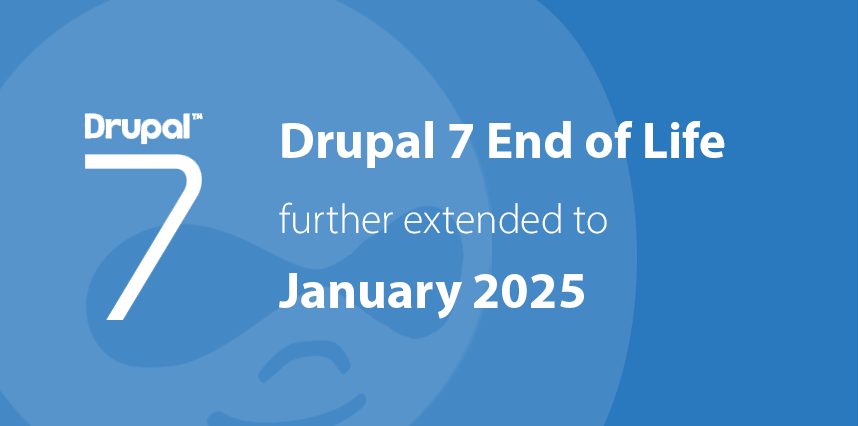
The End of Life (EOL) date for the Drupal 7 version of the platform has been extended for a final time to the beginning of 2025.
The official announcement gives organisations that still have Drupal 7 websites a further 14 months (on top of the original EOL deadline) to upgrade their websites before they go out of official support.
The End of Life for Drupal 7 has had a number of extensions in recent years. Originally announced as November 2021, this was later ended by 12 months due to the COVID-19 pandemic. A further announcement in February last year confirmed another extension to at least November 2023, with that announcement also including the possibility of the support being extended further still.
That further extension has now been confirmed with Drupal 7 now reaching End of Life on 5th January 2025. This will, however, be the final extension.
The new date will be good news for those who are still needing to upgrade their current websites from Drupal 7 to the newer Drupal 10 platform. However, despite the further extension, the strong recommendation remains that you should look at upgrading your website at the earliest opportunity, rather than delaying any further.
This advice also takes into account the notes within the latest announcement that, between now and January 2025, there is likely to be reduced security coverage for Drupal 7 as a whole and an increased risk that some contributed modules for the CMS may become unsupported during this time too.
Another factor to consider is that many Drupal 7 sites are still running on a version of PHP7 (e.g. PHP7.4), which itself has reached end-of-life and is no longer officially supported. While Drupal Core is compatible with the newer, supported PHP8, the issues your site may face in running on PHP8 are 1) whether all contrib modules used on the site are PHP8 compatible and 2) the amount of development work potentially involved in getting all your site's custom modules/themes to work with PHP8.
There is potential for there to be many incompatibilities between your site and the newer PHP8 version which would require (potentially considerable) development time to resolve. A decision therefore needs to be made as to whether you leave your Drupal 7 site running on PHP7 until you replace the site as a whole or carry out the development work to make your site work with PHP8.
You can read more about what End of Life means for your website in our Drupal 7 End-of-Life FAQs guide. We also outline what's involved in moving your website from Drupal 7 to Drupal 10 in this post.
For more advice on what to do with your Drupal 7 website going forward, please contact us and we'll be happy to provide further guidance.

